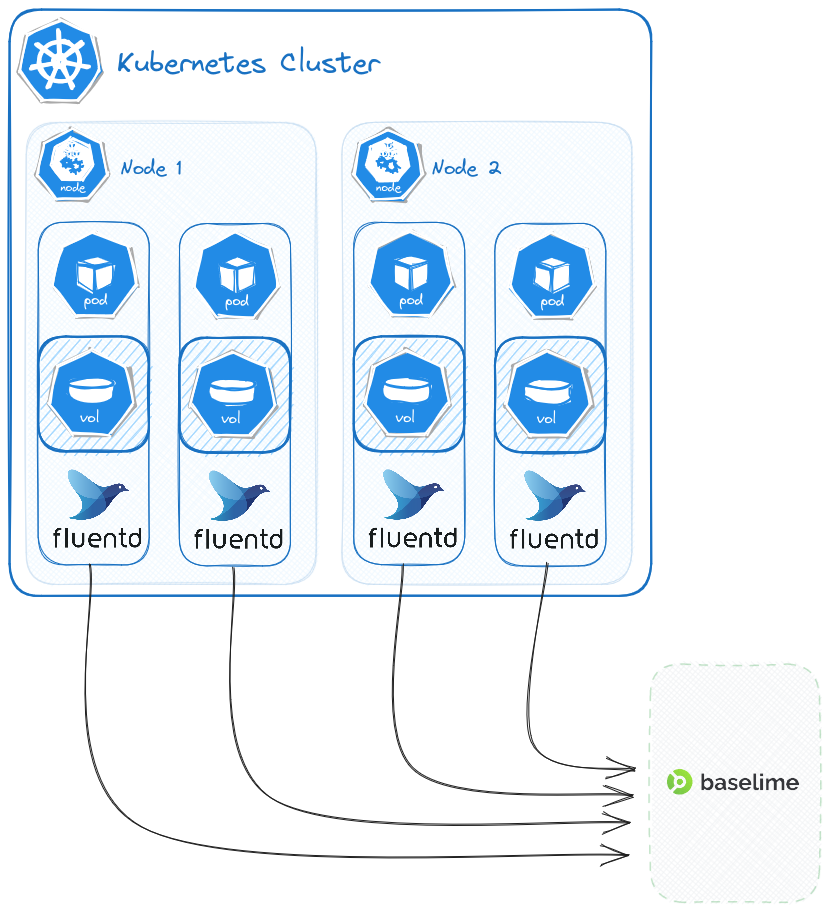#
Kubernetes Logs
If you use Docker or Podman as your container runtime, you can stream your container logs to Baselime by using Fluentbit DaemonSet as your logging driver.
#
How to configure
First create a configuration file with the value of your Baselime API key
apiKey: "YOUR_API_KEY"Get your Baselime API key from the Baselime console.
Install the Baselime Helm chart
helm repo add baselime-logs-exporter https://baselime.github.io/helm-charts
helm repo update
helm install baselime-logs-exporter baselime-logs-exporter/baselime-logs-exporter --values custom-values.yamlYour logs should automatcally be streamed to Baselime in real-time.
#
Best practices
Baselime works best when log messages are written as JSON blobs. For example:
package main
import (
"log/slog"
"os"
)
func main() {
logger := slog.New(slog.NewJSONHandler(os.Stdout, nil))
logger.Info("Hello, logs!", "extra", map[string]interface{}{
"stringField": "stringVal",
"objectField": map[string]interface{}{
"nestedField": "nestedVal",
},
})
}
#
How it works
The Baselime DeamonSet creates an instance of a FluentBit pod in each node in your clusted. The post reads all logs written to /var/log/containers/*.log and /var/log/pods/*.log and forwards them to the Baselime back-end using your Baselime API key over HTTPS.

You can find example implementation in our GitHub repository
